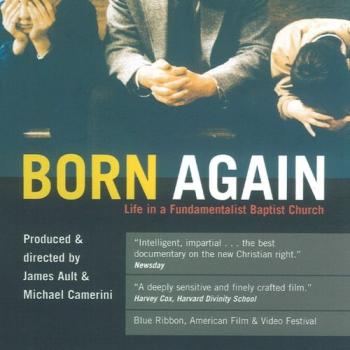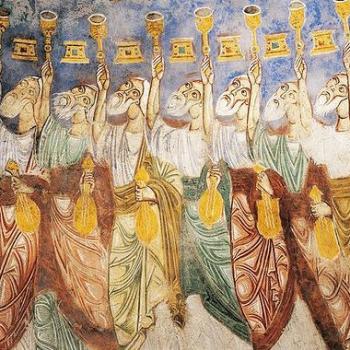The Ultimate Horror Story: Reflections on Stephen King’s New Novel Revival (Spoiler Alert)
I rarely read a Stephen King novel or any similar novel of the “horror” genre. They’re just not my “thing.” I’ve read a few of that genre that I thought were good, such as Ray Bradbury’s classic Something Wicked This Way Comes, but, for the most part, I don’t enjoy them. (The Bradbury novel, by the way, like many of his other books, contains deep philosophical ideas that are worth considering.)
So why did I read Revival (Scribner, 2014)? Well, that’s easy. I recently read King’s detective novel (a genre I do enjoy) Mr. Mercedes (Scribner, 2014) and thought it was not bad. I didn’t read it because it was by Mr. King; I read it because of reviews I read that highly recommended it to lovers (or likers) of detective novels. But I also read Revival because of its religious theme. A Methodist minister-turned-healing-revivalist is one of the two main characters. I’m always intrigued by how secular novels and movies treat that particular theme as I grew up with it. I was raised in the “thick” of healing revivals and attended many as a child and young person. I personally witnessed Kathryn Kuhlman, Oral Roberts and Benny Hinn “at work.” I grew up surrounded by people who knew Aimee Semple McPherson (although she died before I was born). I have vivid memories of attending, with my parents, healing services led by evangelists of lesser renown. My first teaching position was at Oral Roberts University (1982-1984). There I witnessed many healing evangelists, including Oral himself, “close up” including Vineyard leader John Wimber.
So I approached Revival with special interest. I wondered how King would treat the theme. I was disappointed. As usual, for secular novels and movies, the healing revivalist at the center of the story is a total charlatan and worse. He’s even downright evil. An extremely dark figure, a kind of Doctor Frankenstein. But that’s not what makes Revival the ultimate horror story.
What makes Revival the ultimate horror story is the ending which is as opposite of the gospel as possible. King takes us (in his imagination, of course, without any discernable philosophical or theological reasoning) to the worst possible dystopia—the afterlife is a hell called “Null” ruled over by evil beings who enslave and torture dead humans including children. There is no hint of any other afterlife. Even a small child who was killed in a car crash early in the book appears in Null and emerges from it into “this world” to terrorize the main characters who have dared to open the door to the afterlife using an ancient grimoire (an occult book).
I am concerned that the book, especially the final chapters, will haunt some readers—especially impressionable young ones. If you are a parent and see your child reading Revival take it away quickly. That’s my pastoral advice. It most definitely is not for children.
After putting the book down, having finished it, I began to wonder about the mind of a person who could imagine and depict such an afterlife—especially for small children. But then I realized this is the vision some Calvinists actually believe in—for the non-elect. Does it rescue their commitment to the good news of Jesus Christ that they believe some group called “the elect” will enjoy the bliss of heaven while others, possibly including small children, will be tortured and tormented for eternity just for being born guilty of Adam’s sin? Of course, many, perhaps most, contemporary Calvinists claim that all children who die before the age of accountability are assumed to be “elect” and enjoying Paradise with Jesus. But King’s vision of the afterlife, even if not for children, is not far from hell according to many Calvinists. Again, does it rescue their commitment to the good news of Jesus Christ when they talk about heaven for the elect? After all, we must remember that, in their theology, those in Null (Hell) were chosen to be there by God and are there because Adam and Eve fell which God foreordained and rendered certain. Some fortunate few (who knows how many) get to enjoy the bliss of heaven because God chose them arbitrarily (okay, “unconditionally”) and gave them his grace irresistibly. This same God could have done the same for everyone, but he purposely didn’t.
Is Revival’s picture of the afterlife really that different from traditional, “high federal” Calvinism’s? Does the fact that there is also a heaven rescue the nihilism implicit in Revival? Only if one closes one’s “eyes of the mind and heart” to the fact that according to that Calvinism hell is God’s will, part of God’s plan, and that souls there were chosen to be there by God even if only by neglect. As my good friend Austin Fischer argues in Young, Restless, No Longer Reformed (Wipf & Stock, 2013) that is not a beautiful story. I will go further and say it is repulsive.
Note: If you respond with a comment or question, make sure conforms to the following rules or do not expect to see it posted here. It must be relatively brief and concise (don’t write a whole essay!). It must be civil and respectful of persons. It must not misrepresent what I wrote. It must not go “off topic” or be an attempt to promote your own agenda. It must move the conversation forward and not rely on clichés or consist of exclamations or assertions only.















